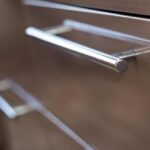Dental Crowns and Potential Applications
- Massive holes that cannot be filled.
- Toothlessness whenever a bridge is required.
- Implants for the teeth are covered.
- Teeth with cracks, wear, or weakness.
- Recovery following a root canal
- Cosmetic factors include teeth that are poorly formed or stained.
- In extreme cases where poor dental hygiene or reluctance to general anesthesia require treatment, crowns may be utilized in juvenile dentistry. For instance, a crown may be recommended if an infant’s teeth have been destroyed by decay.
Are you going to look for any dental labs NYC using the internet address “dental labs near me“? Dental crowns labs near me supply dental labs NYC. Owing to Cayster’s service, which provides dental labs NYC, expanding and PE-backed practice groups were able to track results while preserving the cognitive independence of their practitioners. The “Managed Lab Services” methodology, which also reduces mistake rates and generates data to help decision-making, gives customers more authority over the Cayster option.
The Different Kinds of Crowns
Temporary Crowns vs. Permanent Crowns
A dentist will prepare their patient’s teeth by shaving things down before placing permanent crowns to ensure a suitably shaped base to affix the crown to. Temporary crowns made from a mold of the patient’s original teeth will be attached once the teeth have been reduced in size. The temporary crowns are created from less expensive components like acrylic or specific kinds of metal since they only need to endure for a few weeks. Until the patient’s permanent crowns are placed, these temporary crowns assist guard the freshly shaved down teeth against harm and guarantee that the patient can operate adequately.
While the permanent dental crowns are made to last a lifetime. They are made of clay, resin, or porcelain; some have metal fuses added for extra stability. The patient will come to the dentist’s clinic for the last stage of the treatment after the dentist has created the permanent crowns. The dentist will take out the temporary crowns, give the patient’s teeth and gums a thorough cleaning, and then use powerful dental glue to attach the permanent crowns. The patient will be removed after the crowns are placed, along with aftercare instructions.
What are Dental Crowns Composed Of?
Various Dental Crown Materials:
- Temporary
As was previously said, whereas the permanent crown is created off-site, often in a dental laboratory, temporary crowns can be constructed to immediately cover teeth in your dentist’s office. Stainless steel or acrylic-based materials are frequently used to make temporary crowns.
- Stainless Steel
In order to safeguard a tooth or filling while the permanent crown (made of various materials) is being manufactured, stainless steel crowns are often utilized as a temporary remedy. To prevent further dental decay in young children, stainless steel crowns were frequently used; this way, the crown will naturally fall out once the permanent tooth erupts.
- Metals
Metal crowns are typically made of base-metal alloys, including cobalt-chromium and nickel-chromium or alloys with just a high gold/platinum content. Since they hardly ever chip or shatter, these alloys are regarded as being exceptionally durable since they can withstand the wear and strain of prolonged biting and chewing. The primary drawback is the color, which is why they are frequently used for molars close to the mouth’s rear.
- Porcelain-Fused-to-Metal
This kind of crown is a reliable choice for front or back teeth or whenever a bridge requires the metal’s strength. Porcelain has the advantage of being more aesthetically pleasing since it may be colored to match nearby teeth. Porcelain does have some drawbacks, too. It is more prone to wear, can shatter or break off, and after time, a dark metal “line” may start to show through.
- Zirconia
Due to their excellent looks and durability, this style of crown, which is still relatively new, has become increasingly popular in recent years. Relative to all-ceramic or even all heights, this material’s strength and durability translate into a lesser risk of breaking and chipping.
- All-Resin
Dental crowns constructed solely of resin are less expensive than other crown types, but over time, they are more likely to deteriorate or fracture than porcelain-fused-to-metal crowns.
All-Porcelain or All-Ceramic
These dental crowns are quickly regarded as the best cosmetic option because they offer a natural color match that is considered superior to any alternative materials and unquestionably more acceptable for those with any metal sensitivities. Because they provide the most natural appearance, all-ceramic or all-porcelain crowns were frequently utilized in front-tooth restorations. These crowns’ primary flaw is that they aren’t as durable as metal crowns, although, with careful care, they can survive for many years. Dental crown labs near me provide crowns and other prosthetics. Using the dental crown labs near me key makes it much simpler to select the crucial dental labs NYC.












